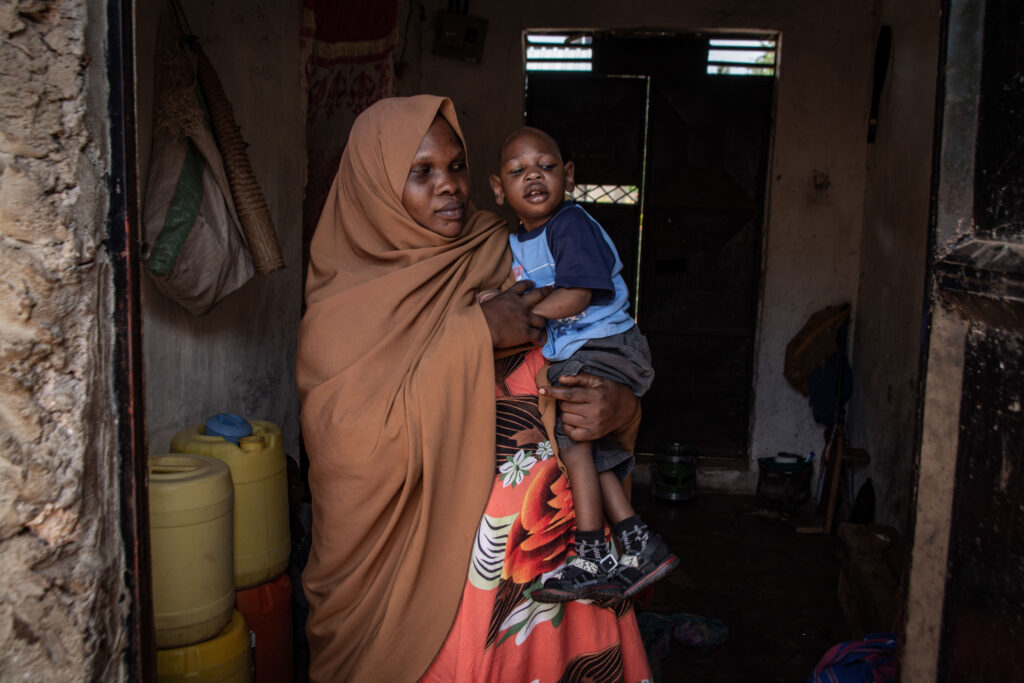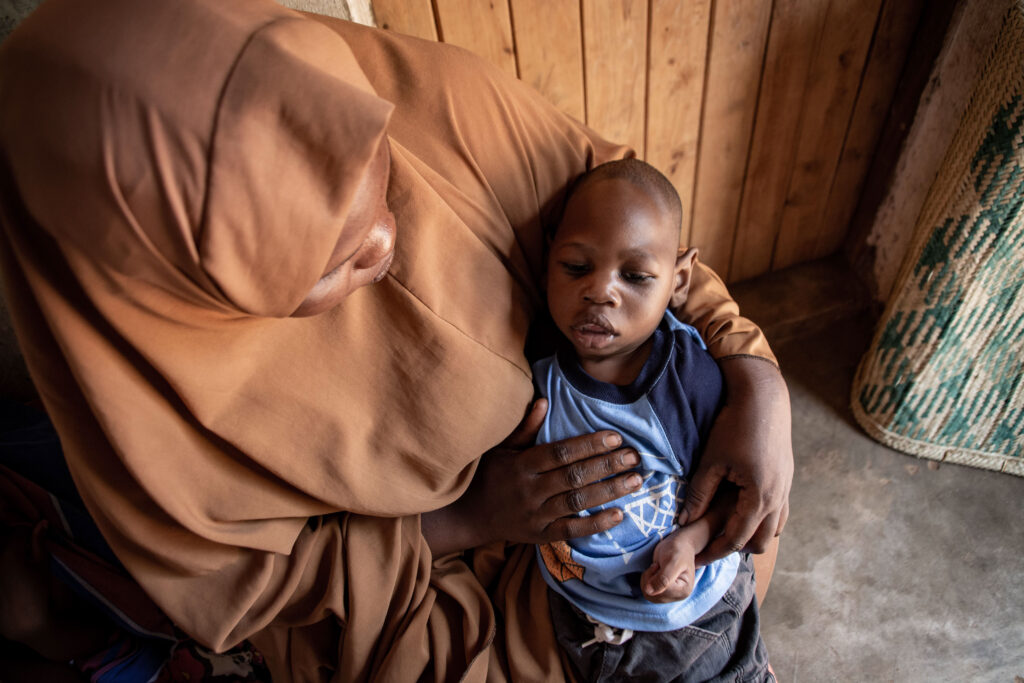Chance to Shine
23 May 2022
In Kenya, children with deafblindness rarely get the support they need.
They often struggle to form connections with others or develop vital skills, leading to isolation and a lack of independence. Sense International’s ‘Chance to Shine’ project is changing that.
Thanks to your help, Sense International raised £813,365 – including £383,794 of match funding from the UK government – between 1 January and 31 March 2020 as part of our ‘Chance to Shine’ appeal. This helped to fund sight and hearing tests for children in rural Kenya and to support those children identified with deafblindness.
“I hope that one day Khalili will be able to recognise me as his mother.”
Saumu, Khalili’s mother
Khalili’s Story
Khalili was born breech which damaged his spine and he experienced foetal distress. In the first two months of his life, he was in and out of hospital.

Khalili was eventually referred to Sense International Kenya’s screening programme and diagnosed with deafblindness. Following his diagnosis, he was referred to the occupational therapy programme.
During Khalili’s sessions, the occupational therapist does physical therapy as well as muscle massages. Khalili is helped into a standing position which helps to strengthen the muscles he needs to sit and stand. The occupational therapist also uses lights and toys to stimulate Khalili’s limited vision.
“Before therapy Khalili was not able to stand or sit by himself. Khalili can now sit independently for some time, and he no longer shakes when he stands. Khalili is also now reacting to audio stimulation. We practice an exercise by ringing a bell which he now reacts to. Khalili has started to smile now too!”
Saumu, Khalili’s mother
What Sense International has achieved so far
Sense International has transformed lives in rural Kenya by providing vital support to children identified with deafblindness. The programme started in October 2020 and so far with your support, Sense International has:
- Integrated sight and hearing testing and therapy units in to four health facilities in Garissa and Kwale Counties in Kenya.
- Sensory screening had been carried out on 11,080 children at the end of 2021.
- We are on track to reach our target of screening 55,000 children in just over two years since the start of the project.
- Identified 44 children that have been diagnosed with deafblindness or other complex disabilities and are now benefitting from early intervention services. We are on target to identify around 120 children by the end of the project. By the end of 2021, 44 children have been identified as having deafblindness or other complex disabilities and are now benefitting from early intervention services.
- Trained 160 health workers on sensory screening and early intervention services.
- Trained 304 community health volunteers exceeding our target of 300. These community health volunteers raise awareness of disability and the screening services.
- Supported Occupational Therapists to advise parents on how to adapt their home environment to make it less restrictive for their children with disabilities, and on what simple exercises they can perform at home.
UK Aid Match
UK Aid Match brings charities, the British public and the UK government together to collectively change the lives of some of the world’s poorest and most vulnerable people.
It is designed to provide opportunities for the UK public to engage with international development issues and have a say in how UK aid is spent, whilst boosting the impact of the very best civil society projects to reach the poorest people in developing countries.
For every £1 donated to a UK Aid Match charity appeal, the government will also contribute £1 of UK aid, to help these projects go further in changing and saving lives. UK Aid Match is funded from the international development budget, for donations made by individuals living in the UK.
Find out more at ukaidmatch.org

